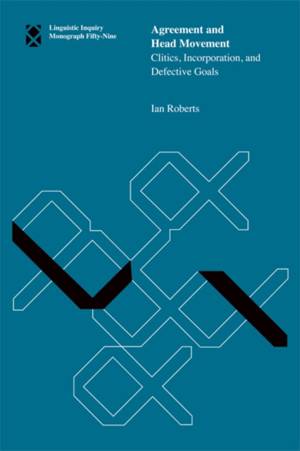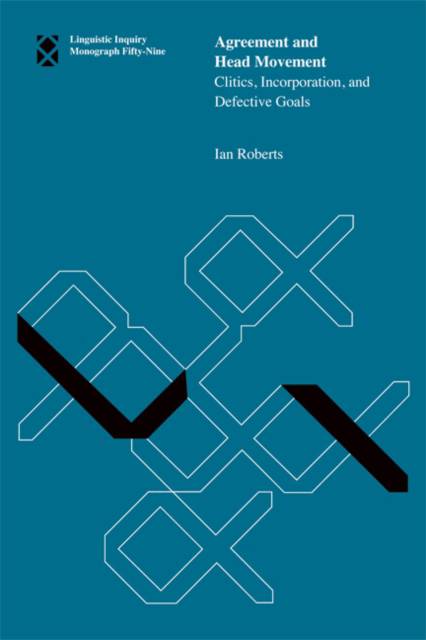
- Afhalen na 1 uur in een winkel met voorraad
- Gratis thuislevering in België vanaf € 30
- Ruim aanbod met 7 miljoen producten
- Afhalen na 1 uur in een winkel met voorraad
- Gratis thuislevering in België vanaf € 30
- Ruim aanbod met 7 miljoen producten
Omschrijving
An argument that, contrary to Chomsky, head-movement is part of the narrow syntax.
In Agreement and Head Movement, Ian Roberts explores the consequences of Chomsky's conjecture that head-movement is not part of the narrow syntax, the computational system that relates the lexicon to the interfaces. Unlike other treatments of the subject that discard the concept entirely, Roberts's monograph retains the core intuition behind head-movement and examines to what extent it can be reformulated and rethought. Roberts argues that the current conception of syntax must accommodate a species of head-movement, although this operation differs somewhat in technical detail and in empirical coverage from earlier understandings of it. He proposes that head-movement is part of the narrow syntax and that it applies where the goal of an Agree relation is defective, in a sense that he defines.
Roberts argues that the theoretical status of head-movement is very similar--in fact identical in various ways--to that of XP-movement. Thus head-movement, like XP-movement, should be regarded as part of narrow syntax exactly to the extent that XP-movement should be. If one aspect of minimalist theorizing is to eliminate unnecessary distinctions, then Roberts's argument can be seen as eliminating the distinction between heads and phrases in relation to internal merge (and therefore reducing the distinctions currently made between internal and external merge).
Linguistic Inquiry Monographs 59
Specificaties
Betrokkenen
- Auteur(s):
- Uitgeverij:
Inhoud
- Aantal bladzijden:
- 290
- Taal:
- Engels
- Reeks:
- Reeksnummer:
- nr. 59
Eigenschappen
- Productcode (EAN):
- 9780262014304
- Verschijningsdatum:
- 30/07/2010
- Uitvoering:
- Hardcover
- Formaat:
- Genaaid
- Afmetingen:
- 157 mm x 231 mm
- Gewicht:
- 521 g

Alleen bij Standaard Boekhandel
Beoordelingen
We publiceren alleen reviews die voldoen aan de voorwaarden voor reviews. Bekijk onze voorwaarden voor reviews.











